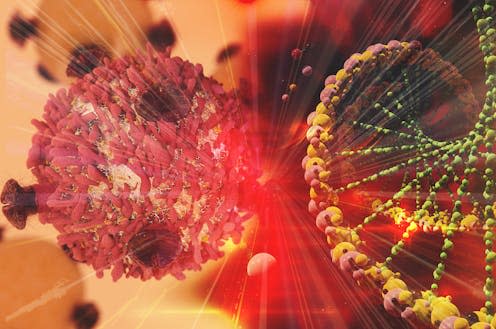Unlocking the body’s defences: understanding immunotherapy

In the battle against diseases, the human body boasts an intricate defence network capable of identifying and neutralising threats – the immune system. It serves as a guardian, constantly patrolling the body to keep it safe from invaders like bacteria, viruses, and even cancer cells.
Scientists are harnessing the power of the body’s natural defence mechanism to develop immunotherapy, revolutionising the landscape of medical treatment. It enhances, redirects, or restores the body’s immune response to recognise and eliminate abnormal cells, such as cancer cells or those responsible for autoimmune diseases like multiple sclerosis, rheumatoid arthritis and type 1 diabetes.
Immunotherapy, however, is expensive. So, chemotherapy and radiation therapy are still the primary cancer treatments for most patients. But these conventional methods can damage healthy tissues as well as abnormal cells. They also tend to have debilitating side effects, such as nausea, vomiting, tiredness and hair loss.
Immunotherapy uses the body’s immune system to combat diseases with precision and minimal harm by blocking molecules – called checkpoint inhibitors – like PD-L1 or CTLA-4 that cancer cells use to turn off the immune systems.
Checkpoint inhibitors are a Nobel prize-winning discovery and they’re now one of the most widely used forms of immunotherapy. They work by blocking surface proteins that prevent immune cells from attacking cancer cells. By lifting the brakes on the immune response, these inhibitors unleash the body’s natural defence mechanism against cancer.
Hot and cold tumours
Tumours are often categorised as “hot” or “cold” based on their interaction with the immune system.
Hot tumours are characterised by a robust immune response, with infiltrating immune cells actively engaging with cancer cells. In contrast, cold tumours exhibit minimal immune activity, often evading detection by the immune system.
Immunotherapy has worked in hot tumours such as melanoma, kidney cancer and lung cancers. However, many tumours – such as most types of colon cancer – respond poorly to immunotherapy because they’re able to evade immune surveillance.
However, immunotherapies are emerging that could expand the benefits to more cancer patients, including those with cold tumours. These approaches include combination therapies using more effective immune checkpoint inhibitors with other agents, including chemotherapy and drugs in trials, to prime the immune system and enhance tumour recognition.
There are other approaches too.
CAR-T cell therapy
CAR-T cell therapy involves extracting a patient’s immune cells and genetically engineering them to produce chimeric antigen receptors – proteins on the surface of the immune cells that recognise cancer – before reintroducing them into the bloodstream. Once inside the body, the modified immune cells target and destroy cancer cells. This treatment has been used in tumour conditions like lymphomas or leukaemias but now these are moving into other cancer types.
Invariant natural killer cells
A 2024 trial used “invariant natural killer cells”, which help coordinate the body’s immune response, as immunotherapy during very severe infections, when people affected by a viral attack on their lungs could no longer breathe. The trial found that most patients recovered despite being critically unwell.
Unlike traditional vaccines that prevent infectious diseases, cancer vaccines stimulate the immune system to recognise and attack cancer cells. Cancer vaccines may contain tumour-specific markers called antigens or genetic material to train the immune system to target cancerous cells.
This means that immunotherapy can offer truly personalised medicine. There’s data, for example, on cancer vaccines from clinical trials based on the changes or mutations of a specific patient’s tumour.
Benefits beyond cancer treatment
While immunotherapy has gained widespread recognition for its efficacy in cancer treatment, its applications could extend far beyond oncology. By harnessing the immune system’s ability to distinguish self from non-self, immunotherapy offers promising avenues for combating a diverse range of ailments.
For example, researchers are exploring its potential in treating autoimmune diseases, allergic disorders, infectious diseases, and even neurological conditions like Alzheimer’s disease.
The treatment can be highly effective but it’s not everyone. For reasons we don’t yet fully understand, some people are resistant to treatment. Immunotherapy isn’t free of side effects either. Autoimmune complications can include colon and lung tissue inflammation. The current high cost of immunotherapy can prove prohibitive for many potential patients. Additionally, uptake of the treatment is limited by patient selection – choosing who would most benefit from this treatment and developing personalised treatment regimens remain critical for maximising results.
Ongoing research into immunotherapy could herald an era of targeted and tailored treatments. These include oncolytic viruses that can attack cancer directly, and microbiome modulation, which uses bacteria to enhance the activity of checkpoint inhibitors.
As our understanding of immunology continues to deepen and technology advances, immunotherapy could offer precision medicine and personalised treatments for a host of previously incurable conditions – the challenge is to make it available and accessible to more patients.
This article is republished from The Conversation under a Creative Commons license. Read the original article.

Justin Stebbing does not work for, consult, own shares in or receive funding from any company or organisation that would benefit from this article, and has disclosed no relevant affiliations beyond their academic appointment.

 Yahoo News
Yahoo News 